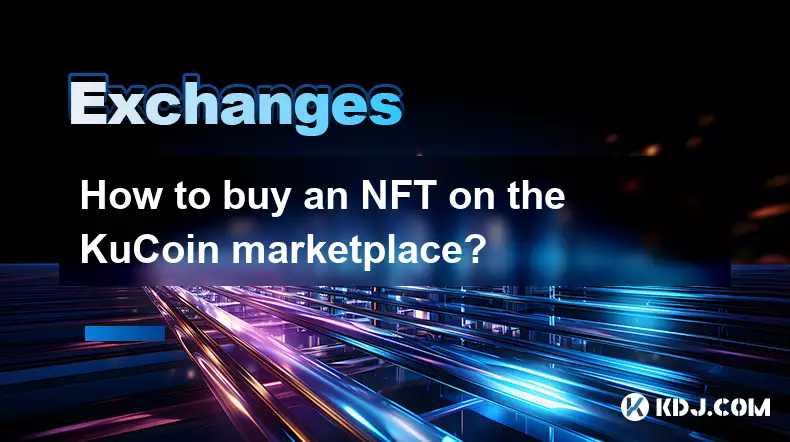-
 bitcoin
bitcoin $124586.364639 USD
0.62% -
 ethereum
ethereum $4670.671710 USD
3.33% -
 xrp
xrp $2.983701 USD
0.18% -
 tether
tether $1.000175 USD
-0.03% -
 bnb
bnb $1209.430642 USD
2.76% -
 solana
solana $231.365861 USD
0.51% -
 usd-coin
usd-coin $0.999665 USD
-0.02% -
 dogecoin
dogecoin $0.264657 USD
4.46% -
 tron
tron $0.346415 USD
1.60% -
 cardano
cardano $0.871586 USD
3.70% -
 chainlink
chainlink $23.451270 USD
7.56% -
 hyperliquid
hyperliquid $46.860071 USD
-2.96% -
 ethena-usde
ethena-usde $1.000120 USD
0.04% -
 sui
sui $3.611279 USD
1.08% -
 stellar
stellar $0.407149 USD
0.96%
How do I apply to become a Binance institutional user?
Binance institutional accounts offer professional traders enhanced security, API access, OTC desks, and personalized support after rigorous verification.
Sep 22, 2025 at 06:18 pm

Understanding Binance Institutional Accounts
1. Binance institutional accounts are tailored for professional traders, financial entities, hedge funds, and high-volume investors seeking advanced trading infrastructure. These accounts provide access to enhanced security protocols, dedicated support, API integrations, and customized liquidity solutions. Unlike standard retail accounts, institutional profiles require formal verification and compliance with regulatory standards.
2. The platform evaluates applicants based on their transaction history, organizational structure, and risk management practices. Entities must demonstrate consistent trading activity and possess verifiable credentials. This ensures alignment with Binance’s operational framework and global compliance obligations.
3. Institutional users gain entry to exclusive features such as over-the-counter (OTC) desks, prime brokerage services, and structured products. These tools enable efficient portfolio management, reduced slippage, and direct market-making capabilities. Access is granted only after thorough due diligence by Binance’s institutional onboarding team.
Eligibility Criteria and Documentation Requirements
1. To qualify, an entity must be legally registered and able to produce official incorporation documents, tax identification numbers, and proof of business operations. Acceptable organizations include asset managers, proprietary trading firms, family offices, and fintech platforms engaged in digital asset transactions.
2. Key documentation includes corporate registration certificates, board resolutions authorizing account creation, and verified identities of beneficial owners and key executives. Financial statements or audited reports may also be requested to validate the firm’s capital base and operational scale.
3. Compliance with anti-money laundering (AML) and know-your-customer (KYC) regulations is mandatory. Applicants must submit evidence of existing AML policies if they operate as financial intermediaries. All documents must be recent, officially certified, and translated into English when necessary.
Application Process and Verification Steps
1. Initiate the process by visiting Binance’s institutional services portal and completing the enterprise inquiry form. Provide detailed information about your organization’s trading objectives, expected volumes, and preferred service suite. A representative will contact you within 3–5 business days.
2. Upon initial review, you will receive instructions to upload required files through a secure document submission system. Each file undergoes validation for authenticity and completeness. Incomplete submissions delay processing and may result in rejection.
3. Following document approval, Binance conducts a technical and compliance interview. This session assesses cybersecurity measures, custody solutions, and internal controls. It also confirms the legitimacy of trading strategies and risk mitigation frameworks employed by the applicant.
4. Final approval triggers the activation of institutional-grade APIs, wallet configurations, and integration support. Users can then configure multi-signature wallets, set up sub-account hierarchies, and begin executing large-scale trades under negotiated fee structures.
Benefits of Institutional Tier Access
1. Institutional clients benefit from personalized fee schedules that scale with trading volume, significantly reducing execution costs. High-frequency traders and market makers receive rebates based on contribution to order book depth.
2. Dedicated account managers provide real-time assistance, facilitate OTC settlements, and coordinate emergency response protocols during volatile market conditions. This level of support minimizes operational disruptions and enhances trade efficiency.
3. Advanced data analytics, historical trade reporting, and co-location services improve decision-making precision. Institutions can leverage Binance’s market depth and global node distribution to optimize latency-sensitive strategies.
4. Regulatory-aligned frameworks allow seamless integration with custodians like Fireblocks and Copper. These partnerships ensure cold storage compatibility, audit trails, and compliance with jurisdiction-specific reporting mandates.
Frequently Asked Questions
What is the minimum trading volume required for institutional status?Binance does not publicly disclose exact volume thresholds. However, consistent monthly spot or derivatives volume exceeding $10 million typically meets eligibility benchmarks. Exceptions exist for strategically aligned firms with strong compliance records.
Can non-profit organizations apply for institutional accounts?Yes, provided they engage in systematic crypto asset management and meet all legal and compliance criteria. Non-profits must present exemption certificates and governance documentation outlining their digital asset usage policy.
Are there geographic restrictions for institutional applicants?Certain jurisdictions are restricted due to local regulatory constraints. Entities based in FATF-compliant regions with clear crypto licensing frameworks have higher approval rates. Applications from sanctioned territories are automatically declined.
How long does the full verification process take?From submission to activation, the average duration ranges between 10 to 21 business days. Processing speed depends on responsiveness during interviews, clarity of documentation, and complexity of corporate ownership structures.
Disclaimer:info@kdj.com
The information provided is not trading advice. kdj.com does not assume any responsibility for any investments made based on the information provided in this article. Cryptocurrencies are highly volatile and it is highly recommended that you invest with caution after thorough research!
If you believe that the content used on this website infringes your copyright, please contact us immediately (info@kdj.com) and we will delete it promptly.
- BlockDAG, DOGE, HYPE Sponsorship: Crypto Trends Shaping 2025
- 2025-10-01 00:25:13
- Deutsche Börse and Circle: A StableCoin Adoption Powerhouse in Europe
- 2025-10-01 00:25:13
- BlockDAG's Presale Buzz: Is It the Crypto to Watch in October 2025?
- 2025-10-01 00:30:13
- Bitcoin, Crypto, and IQ: When Genius Meets Digital Gold?
- 2025-10-01 00:30:13
- Stablecoins, American Innovation, and Wallet Tokens: The Next Frontier
- 2025-10-01 00:35:12
- NBU, Coins, and Crypto in Ukraine: A New Yorker's Take
- 2025-10-01 00:45:14
Related knowledge

How to close my position in KuCoin Futures?
Oct 01,2025 at 07:54pm
Understanding Position Closure in KuCoin FuturesTrading futures on KuCoin requires a clear understanding of how to manage open positions. Closing a po...

How to find the contract address for a token on KuCoin?
Sep 30,2025 at 09:00pm
Finding the Contract Address on KuCoin1. Log into your KuCoin account through the official website or mobile application. Navigate to the 'Markets' se...

How to set up SMS verification on my KuCoin account?
Oct 03,2025 at 12:36am
How to Enable SMS Verification on Your KuCoin AccountSecuring your cryptocurrency exchange account is essential, especially on platforms like KuCoin w...

How to update the KuCoin app to the latest version?
Oct 03,2025 at 02:18am
How to Update the KuCoin App: A Step-by-Step GuideKeeping your KuCoin app updated ensures access to the latest security features, trading tools, and u...

How to buy an NFT on the KuCoin marketplace?
Oct 02,2025 at 10:19pm
Accessing the KuCoin NFT Marketplace1. Log in to your KuCoin account through the official website or mobile application. Ensure that two-factor authen...

How to create a sub-account on KuCoin?
Oct 03,2025 at 10:18pm
Accessing the KuCoin Dashboard1. Navigate to the official KuCoin website and log in using your registered email and password. Two-factor authenticatio...

How to close my position in KuCoin Futures?
Oct 01,2025 at 07:54pm
Understanding Position Closure in KuCoin FuturesTrading futures on KuCoin requires a clear understanding of how to manage open positions. Closing a po...

How to find the contract address for a token on KuCoin?
Sep 30,2025 at 09:00pm
Finding the Contract Address on KuCoin1. Log into your KuCoin account through the official website or mobile application. Navigate to the 'Markets' se...

How to set up SMS verification on my KuCoin account?
Oct 03,2025 at 12:36am
How to Enable SMS Verification on Your KuCoin AccountSecuring your cryptocurrency exchange account is essential, especially on platforms like KuCoin w...

How to update the KuCoin app to the latest version?
Oct 03,2025 at 02:18am
How to Update the KuCoin App: A Step-by-Step GuideKeeping your KuCoin app updated ensures access to the latest security features, trading tools, and u...

How to buy an NFT on the KuCoin marketplace?
Oct 02,2025 at 10:19pm
Accessing the KuCoin NFT Marketplace1. Log in to your KuCoin account through the official website or mobile application. Ensure that two-factor authen...

How to create a sub-account on KuCoin?
Oct 03,2025 at 10:18pm
Accessing the KuCoin Dashboard1. Navigate to the official KuCoin website and log in using your registered email and password. Two-factor authenticatio...
See all articles










































































